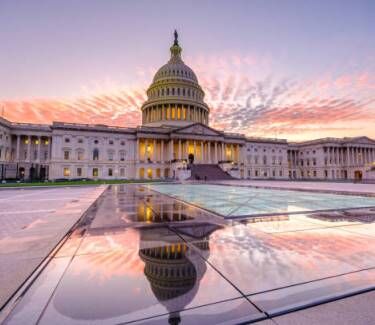The Nurture Originals, Foster Art, and Keep Entertainment Safe Act, also known as the NO FAKES Act, introduced in the U.S. House of Representatives last September, was reintroduced in the Senate during a Wednesday press conference attended by leaders of the Recording Academy during its annual “Grammys on the Hill” initiative, along with members of SAG-AFTRA, RIAA, MPA, Warner Music Group, YouTube, and Human Artistry Campaign.
The act’s reintroduction at the Capitol Hill press conference was announced by Sens. Chris Coons (D-DE) and Marsha Blackburn (R-TN), and Reps. Madeleine Dean (D-PA) and Maria Salazar (R-FL). If passed, the bill — sponsored by Sens. Blackburn and Coons, along with Sens. Amy Klobuchar (D-MN) and Thom Tillis (R-NC) — would establish a federal right in voice and likeness to protect against unauthorized use of digital replicas in audiovisual works and sound recordings, now more prevalent with the rise of AI.
“Today’s reintroduction of the NO FAKES Act underscores our members’ commitment to advocating for the music community, and as we enter a new era of technology, we must create guardrails around AI and ensure it enhances — not replaces — human creativity,” Recording Academy CEO Harvey Mason Jr. says. “We thank Senators Blackburn and Coons, and Representatives Dean and Salazar, for their unwavering support on this issue, and we look forward to working alongside them to pass the No Fakes Act this Congress.”
SAG-AFTRA President Fran Drescher adds, “The NO FAKES Act isn’t just about protecting actors, recording artists and broadcasters. Deep fakes can ruin all lives. It doesn’t matter if you’re a public figure or a high school student being exploited by internet creeps. It’s time to give humans the power to say no, not my face, not my voice! Thank you, Senators Blackburn, Coons, Klobuchar and Tillis for defending the rights of humans in the age of digital clones!”
The NO FAKES Act would preserve existing protections at the state level, such as Tennessee’s ELVIS Act, which was passed in 2024 and inspired similar legislation in California and Illinois.

